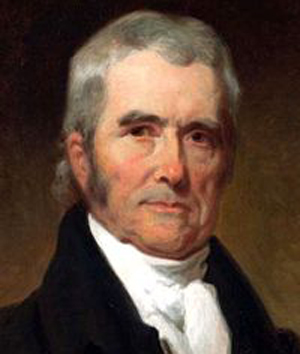It's time for a Constitutional amendment granting Congress the power to set aside Supreme Court decisions.
The President can veto bills passed by Congress. Congress can override Presidential vetoes. Check and balance.
But the Supreme Court is not similarly limited. There is no appealing its decisions. The only recourse is amending the Constitution, an arduous process that requires the approval of two thirds of each house of Congress, and ratification by three fourths of the states.
The Constitution does not explicitly give the Supreme Court the power to rule on the validity of legislation. It wasn't until 1803, in the Marbury v Madison decision, that Chief Justice John Marshall invented the "doctrine of judicial review;" a principle which gave the courts the authority to strike down laws deemed unconstitutional.
Justice Marshall noted in the decision that "an act of the legislature, repugnant to the Constitution, is void." Unfortunately, repugnancy is not limited to one branch of government, and the Constitution provides no remedy for acts of the courts which are equally repugnant.
The people, through their legislative representatives, should have the right to override the Supreme Court, especially when it appears the Court's actions are based not on prior law, but ideological beliefs or external influence.
This isn't a progressive/conservative issue. It's a fundamental flaw in the implementation of our government.
Vetoing the Court shouldn't be as difficult as passing a constitutional amendment, but it shouldn't be easy, either. In fact, it should require not the two-thirds vote of both houses necessary to pass an amendment, but a three-quarters vote- the same majority as the number of states required to ratify the change.
It would also force legislators to reveal their true positions. Congressmen and senators can often rationalize their vote by pointing to certain provisions of a bill with which they disagree, providing the weasel room necessary when seeking re-election. A straight up or down vote leaves no room for misinterpretation. A three-fourths majority eliminates the taint of partisanship, and could only occur when the Court has acted in a manner truly "repugnant to the Constitution."
Our government is based upon citizens' respect for the rule of law. When that respect is lost, law becomes irrelevant. And a nation without law is a nation that cannot survive.
Categories: KGB Opinion
![]() Subscribe
[Home]
[Commentwear]
[E-Mail KGB]
Subscribe
[Home]
[Commentwear]
[E-Mail KGB]
Older entries, Archives and Categories Top of page


















